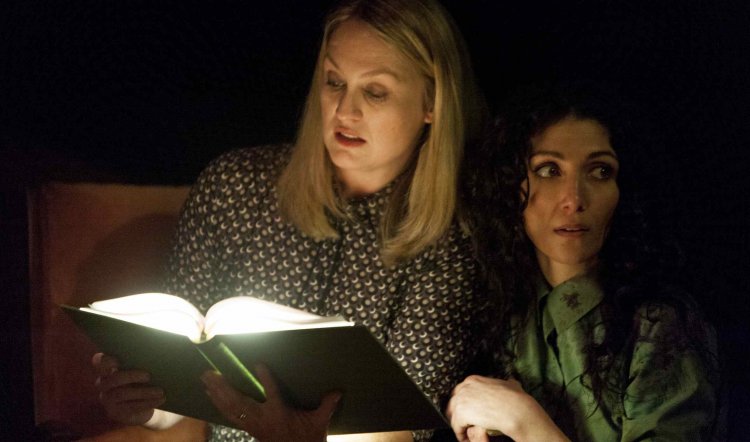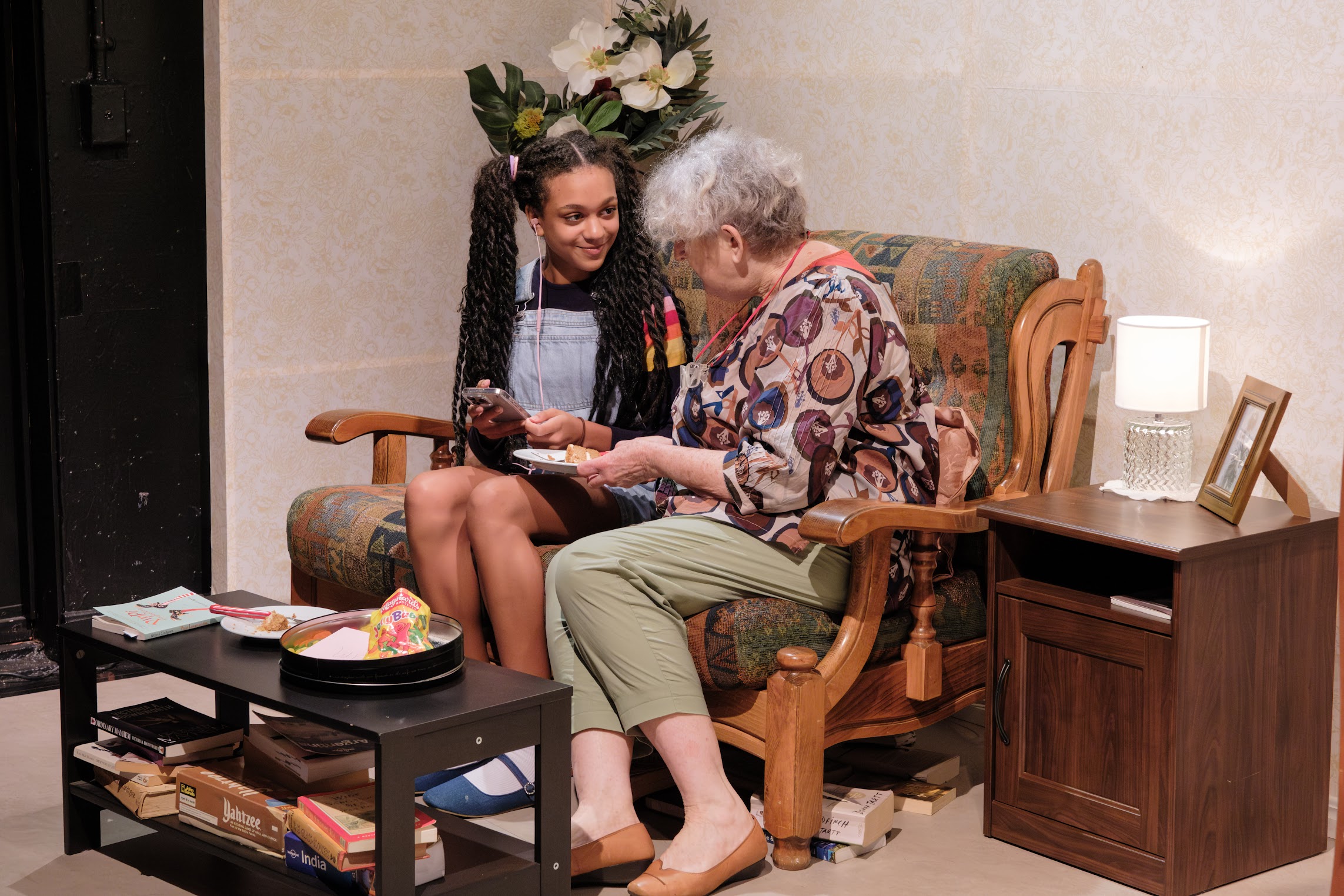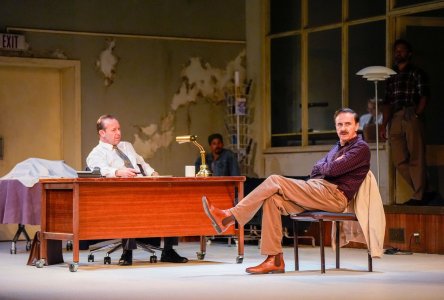
THE SPLINTER
THE SPLINTER, Sydney theatre Company in Wharf 1, August 15-September 15, 2012. Photos by Brett Boardman, main photo: Helen Thomson and Julia Ohannessian. Right: Erik Thomson.
This new work by Hilary Bell started off as a commission from the STC for a creepy play for kids. Which goes to show that contrary to popular belief, sometimes the apple can not only fall far from the tree but can also turn into something else entirely. Aside from being enthralling at 80 uninterrupted minutes, The Splinter is definitely adults-only and also for mature adults at that. It is disturbing on many levels and for many reasons, not least that it is capable of being interpreted in at least a half dozen different ways. It's not possible to trip out of the theatre and forget it. On opening night, conversations and arguments continued in the bar at the end of the Wharf until well after midnight.
Ostensibly, the play is about a couple - unnamed Mother and Father - whose small daughter vanished nine months previously and has just miraculously reappeared. Their joy at her return is boundless. Helen Thomson, always a fine performer, is transcendent in these early scenes as she teeters between euphoria, disbelief, relived fear and shaky incomprehension. As her husband, Erik Thomson is clumsy and well meaning as he bobs in her wake; only too aware of how much he didn't cope and how she held them together. They are tender performances.
Their happiness is short-lived, however, because little Laura isn't the girl she used to be. Of course, she is bigger, has changed physically and is - possibly - traumatised by what has happened to her. But she will not speak to them and she behaves with discomfiting chilliness towards her helpless parents. Her silent, wide-eyed presence is also theatrically disconcerting as she is represented by a series of ethereal and possibly malevolent puppets (puppetry and movement director Alice Osborne) that are manipulated - in more ways than one - by Julia Ohannessian and Kate Worsley.
Very quickly, lighthearted rejoicing and the small pleasures of the everyday give way to darker realms of possibility. Neither parent can connect with the girl and their efforts to be effortless grow ever more desperate and at odds. Bell's script throws up tantalising flashes of images and ideas that never coalesce into easy answers. Thoughts float in the air and vanish again - the fate of children such as Madeleine McCann, Tot Mom, sooterkins, changelings and even Angelina Jolie's movie Changeling. Yes - definitely changelings.
All the folklore and mythology about changelings swirl around the gloomy setting that is the family's old seaside shack. Renee Mulder (with lighting designer Damien Cooper) has designed a place that is definitely more suited to trolls and bad fairies than to a little family trying to holiday and reconnect with their former more innocent selves. The ratty whorls of beige and green carpeting that covers the floor is clue enough that this place is not going to make anyone happy. In other circumstances it would be funny, as it is it merely underlines the plight of the hapless parents, as do their equally dismal clothes and the suspiciously ladylike garb of the fairy-troll-nasty young women.

The Splinter is a fascinating mix of reality and fantasy, kindness and cruelty, possibility and hopelessness. The horror and elation experienced by the Mother and Father are poignant and stirring; the thought that "there but for the grace of god …" is never far away as the likelihood of fantasy or mental illness looms - is the Mother deluded in believing she had a child but did not? Did the Father crack more than we know? Is he right in thinking his daughter has been replaced by an interloper? Is Laura of this world and if not, what does that mean?
The play has been three years in gestation and it shows; the dialogue is crisp and resonant; the characters are three-dimensional and affecting and the actors are very fine. Thomson, in particular, having most recently entertained audiences as the hysterical wife of In The Next Room and the running-out-of-time gal of Summer of the Seventeenth Doll, reveals even more depth and ability as the woman who has lost and found so much but is so ordinary that you'd step over her in a supermarket. Emily Maguire (composer) and Steve Francis (sound design) also add to the otherworldly dimension that underlines how the show is above realism and the kitchen sink.
The Splinter is deceptive, disturbing and resonates long after its final moments. It's impossible to pigeonhole or pin down and as such it makes for an unusually entertaining and troubling evening.



